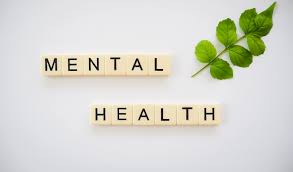Last updated on March 26th, 2024 at 12:13 am

Depression can happen to anyone, at any age and stage of life. The symptoms of depression can affect life in different aspects, from negatively impacting sleep, energy levels, and appetite to hobbies and relationships. One of the most common things about depression in seniors is how it can go almost unnoticed. Thus, this can in turn limit their access to adequate help. If you’re wondering how seniors can battle depression and what to do to get help, here’s what you need to know.
Table of Contents
Common signs and symptoms
The tell-tale signs of depression look different for everyone. However, here are some general signs that you can look out for;
- Sudden loss of interest in social activities,
- Sadness and feelings of despair,
- Irregular sleep patterns or disturbances,
- Memory problems,
- Lack of enthusiasm or motivation,
- Loss of appetite and weight loss,
- Incessant worrying and self-loathing,
- Increased dependence on drugs or alcohol,
- Aggravated pain and aches,
- Fixation on death
Again, the symptoms look different for different people, and for a number of reasons, it’s even harder to spot them in older people. It’s important to look closely and try to figure out the cause of depression in the affected senior.
Causes of depression in seniors
Depression in seniors can be caused by several factors. some of them include:
- Loneliness and isolation
Many seniors tend to feel lonely as they get older, and the reason for this isn’t farfetched. Some of them begin to live alone, or they may start experiencing losses (be it their neighbors, old friends, or family members).
- Health complications
Sometimes, complications that occur as a result of existing health issues may lead to depression. The thought of having to live with a health issue may trigger this mental health problem.
- Fears and a reduced sense of purpose
Seniors, like everyone else, go through different stages of life and have fears. Many of us at some point in our lives start having questions as to why our lives have gone a certain way. Seniors are especially prone to asking themselves these questions, having fears about the future and death in general, which can cause depressive episodes.
Dealing with depression at 65+
The first step to dealing with depression in an older adult is realizing that you need professional help. So, reach out to your doctor for proper diagnosis, most likely through a screening test.
Then, the treatment options for depression in seniors are pretty conventional, only that there are several special considerations. Treatment options include:
- Medications
Antidepressants are a very viable option for the treatment of depression in seniors. However, you’ll have to discuss the possible side effects with your medical professional.
- Psychotherapy
Psychotherapy is one way to deal with depression. There are different types of psychotherapy, and different therapists may use different approaches. Some of the more common types of psychotherapy include cognitive-behavioral therapy, interpersonal therapy, and psychodynamic therapy. Psychotherapy is an alternative to medications or can be used in combination with them, and can be a worthy option for seniors.
Wrapping it up…
The good news for seniors suffering from depression is that Medicare includes mental health coverage in its plans. Medicare Part B in particular covers mental health services relating to outpatient treatment with depression screenings being an important part of it. Also, it covers referrals for other mental health specialists just in case the need arises.
There are many effective treatments available for depression, so don’t hesitate to seek help if you are struggling. Visit Hella Health or any other online advisor to learn about various Medicare Plans and options to make treating depression affordable. Remember that it is ok to ask for help since depression is just another illness that exists in our world, and it is important to pay attention to symptoms and seek treatment, just like you would do when you have any other health issue. Stay healthy and happy!
Related Articles:







